Jazzpunk hands-on: a surreal, hilarious espionage adventure that aims to amuse
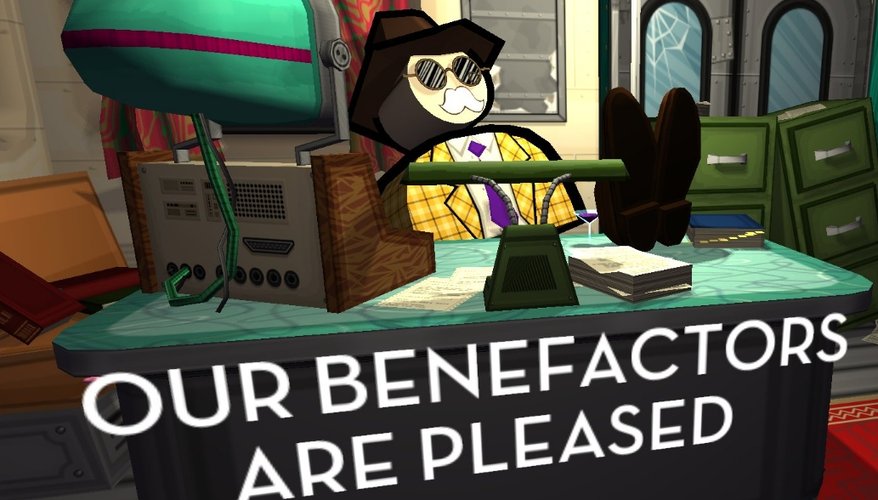
I'm helping a frog to steal wi-fi by grabbing invisible packets of data with a virtual reality headset and an extendible tongue. Before that I was angering cinema-goers with thick clouds of cigar smoke, and moments later I would send a flock of pigeons to harass a security guard. None of these actions were required to complete my primary mission of stealing a cassette tape from the Soviet consulate. Instead, they were the unravelling threads of Jazzpunk's intricate patchwork of jokes.
Jazzpunk is a first-person espionage adventure, reminiscent to Blendo Games' Gravity Bone and... well, not much else in the medium of gaming. Its true source of inspiration lies in cinema, specifically from comedy films. Even more specifically from good comedy films, like the joke-packed hijinks of Airplane or Naked Gun. Down every alleyway, on every sign and in every interaction you'll find another throwaway gag poking fun at the tenuous reality of the game's surreal and conspiratorial world.
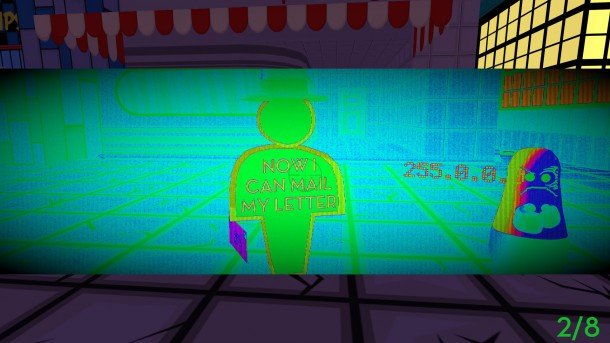
Despite using the plot beats of a spy thriller, you're never in any actual peril. Instead of high-stakes tension and potentially frustrating fail-states, you're encouraged to take your time in each area, collecting up quick-fire vignettes of humour. It's an ambitious focus for the developers to take, if only because comedy is so subjective, but the dense fug of slapstick and one-liners create a pace that works in Jazzpunk's favour. It doesn't really matter if one of its jokes falls flat, because another will appear a few steps down the round.
From the opening briefing, to the escape sequence that closes out the short IGF build that I played, Jazzpunk is continuously throwing up smart new ways to deliver this humour. A chance encounter might lead to a few lines of dialogue, or expand into a sprawling side-quest filled with strange interactions and gentle puzzling.
Those puzzles are never so involved as to be taxing, but do push you towards noticing your surroundings. Each level has a main objective, usually requiring that you manipulate nearby objects to set off a chain reaction that, while exaggerated, never succumbs to adventure game guesswork. In the first mission, that means breaking into the consulate, entering an alternate cyber-dimension, and infiltrating a telephone network with the help of "Komrad Krunch" cereal. No really, this all makes sense when you're doing it.
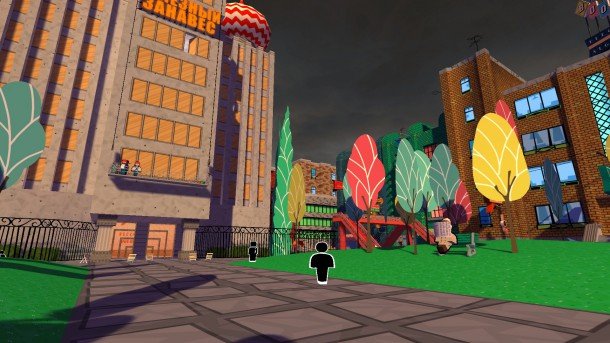
While, on the one hand, Jazzpunk seems to delight in its own weirdness and abstractions, there is an almost oddball consistency to its setting. Whether it's the punning saxophonist, the faceless NPCs or the pull-string activated agent, you'll experience frequent riffs on a technophile society, the nature of anonymity and the intrigue of rival organisations.
How much those themes spiral into a full story remains to be seen. By the end of the demo's two missions I'd stolen cartridges and harvested organs, all for the deep-voiced mission controller back at the protagonist's Darlington base. To what purpose remains unknown, but it would be nice to think there was some plot to connect the game's many funny vignettes.
Keep up to date with the most important stories and the best deals, as picked by the PC Gamer team.
It's just as likely there isn't, opening up the possibility that Jazzpunk is more interested in style over substance. Except, because it's so effortlessly inventive in its presentation, the style feeds naturally into the substance, inexorably linking the two with fake hands and fly-swatting minigames.
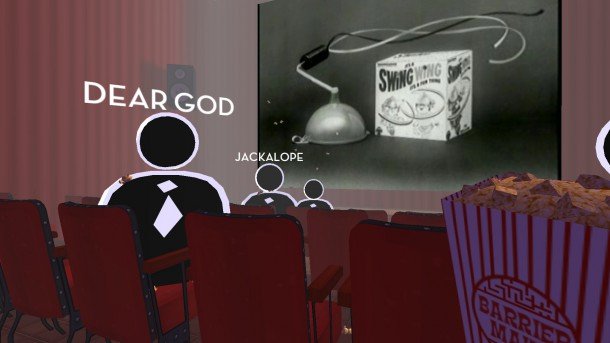
However much purpose Jazzpunk ultimately has, it's still primed to be an enjoyable and aesthetically striking adventure. It's a visually playful game, as evidenced by the stark subtitles that accompany - although don't always correspond with - NPC speech, and in the way that its cutscenes will ape classic cinematography, but filter the results through the surreal lens of a world in which every word is a real object and everything can be interacted with.
The dedication to freedom is the key to why it works. While Jazzpunk's strongest comparisons are to film, the majority of its jokes arise from how you manipulate its world. In effect, it's the next game to ask the question of what a game can be. Unlike the ponderously harrowing Dear Esther, the narratively taut 30 Flights of Loving, or even the amusingly self-reflecting Stanley Parable, Jazzpunk's answer feels more celebratory. Games can be funny as a primary design goal.
It's not only acceptable to be gaming's Airplane, it should be encouraged.
Jazzpunk is due out January 2014, and is available to pre-order now.
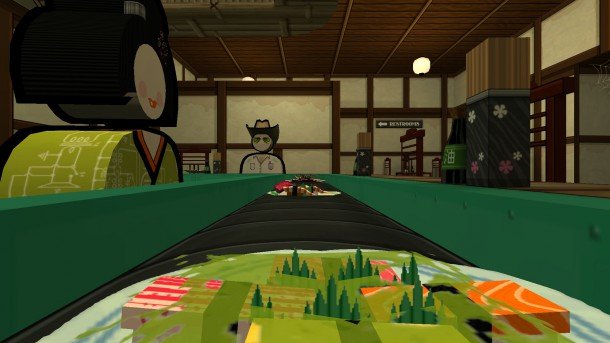
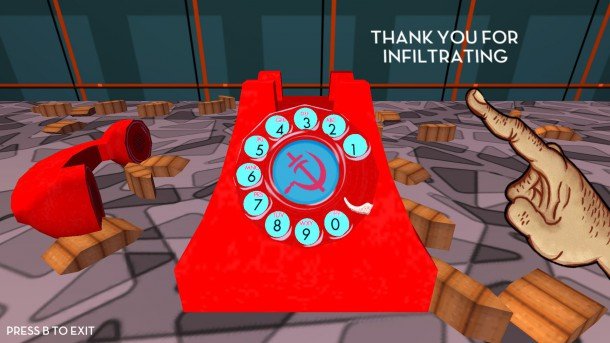
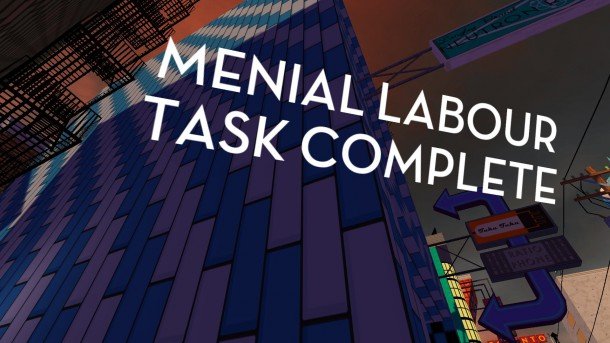

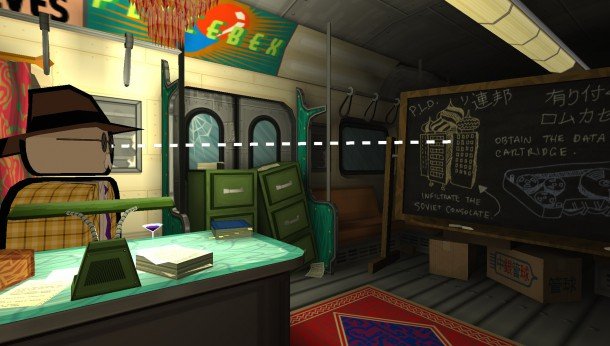

Phil has been writing for PC Gamer for nearly a decade, starting out as a freelance writer covering everything from free games to MMOs. He eventually joined full-time as a news writer, before moving to the magazine to review immersive sims, RPGs and Hitman games. Now he leads PC Gamer's UK team, but still sometimes finds the time to write about his ongoing obsessions with Destiny 2, GTA Online and Apex Legends. When he's not levelling up battle passes, he's checking out the latest tactics game or dipping back into Guild Wars 2. He's largely responsible for the whole Tub Geralt thing, but still isn't sorry.

